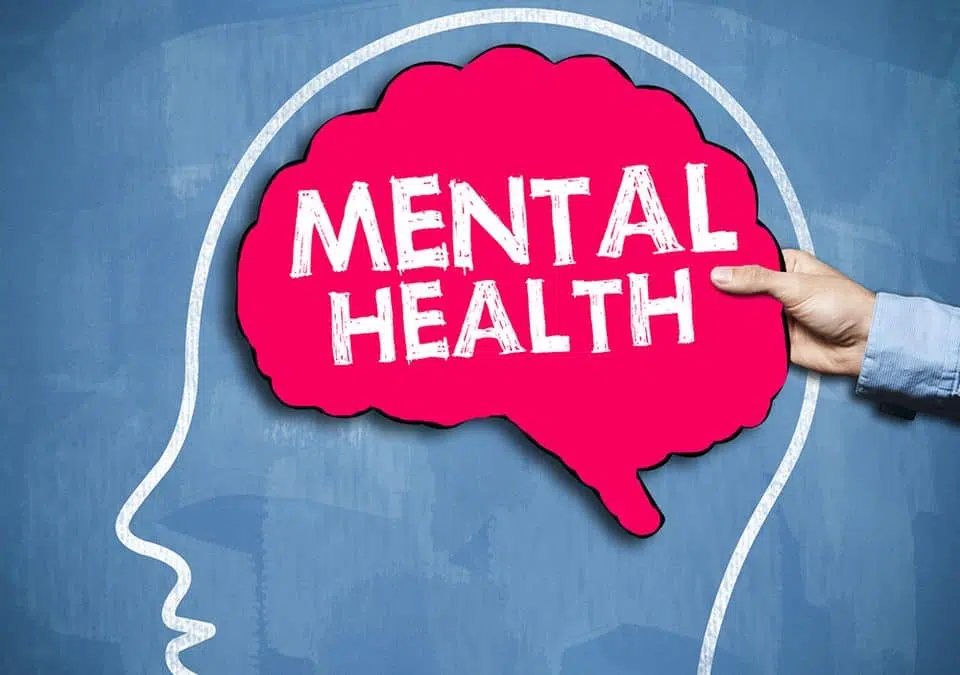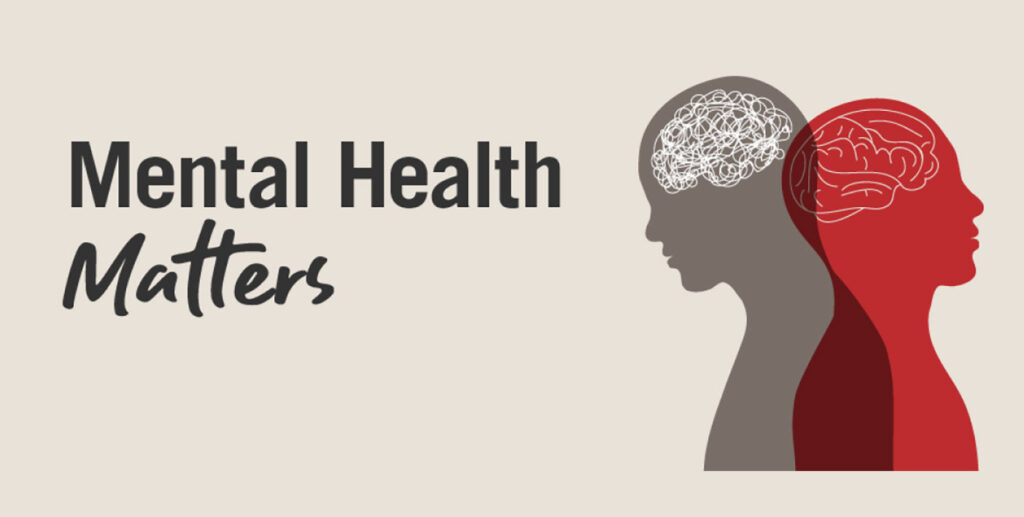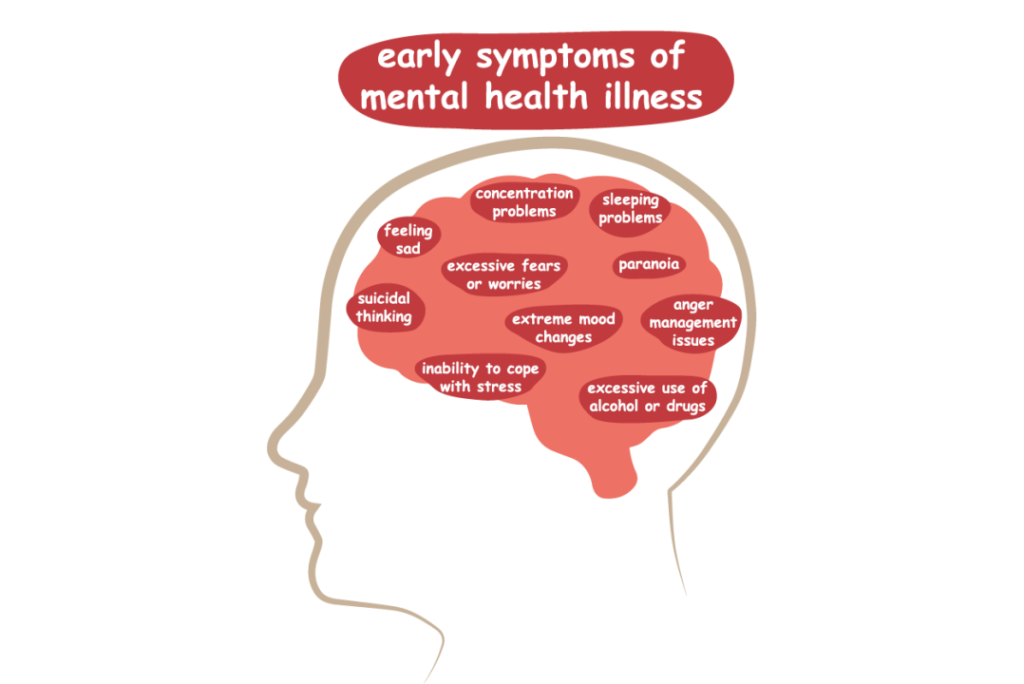Your mental health is a crucial aspect of your overall well-being. This component of your welfare influences your ability to function psychologically, emotionally, and socially, among other things. Given how crucial your mental health is in all aspects of your life, it’s critical to protect and improve psychological wellness through suitable measures. Maintaining good mental health is a journey rather than a destination. It’s an ongoing process that necessitates perseverance, patience, and self-compassion. As someone who has experienced the ups and downs of mental health, I am eager to share practical techniques to help you maintain good mental health. But first, let’s understand mental health.
Key Takeaways
- Mental health is just as important as physical health. It affects every aspect of our lives, from our relationships to our careers.
- Factors that may affect mental health and raise the likelihood of acquiring psychological disorders are child abuse, the environment, biology, and lifestyle.
- Some warning signs to look for that could indicate negative changes in one’s well-being include a change in eating habits, whether overeating or undereating, a notable drop in energy levels, becoming more reclusive and shying away from others, and feeling continuous despair.
- A stronger ability to cope with life’s stressors, a positive self-image, healthier relationships, better productivity, and higher quality of life are some benefits of good mental health.
- A few strategies to maintain good mental health include talking to someone you trust, engaging in a mental workout to maintain good mental health, eating a balanced diet, adequate sleep, and taking a break.
Understanding Mental Health

Mental health is a complex interplay of our thoughts, feelings, and behaviors. It’s about how we handle stress, build relationships, and make decisions. It’s the foundation upon which we build our lives. Good mental health allows us to cope with the daily stresses of life, work productively, and contribute meaningfully to our communities.
According to the World Health Organization (WHO), depression is a leading cause of disability worldwide, and mental health conditions are increasing. This statistic alone underscores the importance of maintaining good mental health.
I’ve had my fair share of mental health ups and downs. There have been times when the weight of the world felt like it was on my shoulders. But I’ve also experienced periods of incredible clarity and peace. It’s a journey, and everyone’s path is different.
Why Mental Health Matters

Mental health is just as important as physical health. It affects every aspect of our lives, from our relationships to our careers. When our mental health is thriving, we’re better equipped to handle challenges, build strong connections, and achieve our goals.
Studies have shown a direct link between mental health and physical health. Conditions like heart disease, diabetes, and even the common cold can be exacerbated by chronic stress and poor mental health. It’s a domino effect.
Risk Factors for Poor Mental Health

Mental health is defined as a condition of well-being in which a person can deal with the usual stressors of life. This state enables productive work output and meaningful contributions to society.
However, various conditions can have an impact on one’s ability to deal with life’s unexpected challenges. These circumstances may also disturb daily activities and your ability to manage these changes. That is only one reason why mental health is so essential.
The following factors may affect mental health and raise the likelihood of acquiring psychological disorders.
#1. Child Abuse
Childhood physical assault, sexual violence, emotional abuse, or neglect can all result in serious mental and emotional trauma. Abuse raises the possibility of having mental issues such as depression, anxiety, post-traumatic stress disorder, or personality.
Children who have been abused may develop issues with alcohol and other substances. Aside from mental health issues, child abuse can lead to bodily complications like diabetes, stroke, and other types of heart disease.
#2. The Environment
The state of a person’s typical environment has a significant impact on their mental well-being. Adverse environmental situations can have a negative impact on psychological health.
For example, weather conditions may contribute to an increase in suicide cases. Similarly, witnessing natural disasters directly can raise the likelihood of developing PTSD. In certain situations, air pollution may have a deleterious impact on depressive symptoms.
#3. Biology
Your biological makeup may have an impact on your overall health. Several mental health issues have been linked to family history and may be passed down to members. These include conditions such as autism, attention deficit hyperactivity disorder, bipolar disorder, depression, and schizophrenia.
#4. Lifestyle
Your lifestyle can have an impact on your mental health. Smoking, eating a poor diet, drinking alcohol, using drugs, and engaging in unsafe sexual conduct can all cause psychological trauma. These habits have been associated with depression.
Read More: What are the 7 Risk Factors for Mental Health?
Signs of Mental Health Problems

When someone’s mental health is deteriorating, it is not necessarily obvious to them or those around them. However, there are several warning signs to look for that could indicate negative changes in one’s well-being. This includes:
- A change in eating habits, whether overeating or undereating
- A notable drop in energy levels.
- Become more reclusive and shy away from others.
- Feeling continuous despair.
- Excessive use of alcohol, tobacco, or other substances
- Experience unexplainable bewilderment, anger, guilt, or worry.
- Serious mood swings
- Picking fights with family and friends
Benefits of Good Mental Health

Whether young or old, the value of mental health for overall well-being cannot be understated. When psychological wellness is compromised, it can lead to undesirable behaviors that not only harm personal health but also jeopardize relationships with others. The following are some of the benefits of good mental health.
#1. A Stronger Ability to Cope With Life’s Stressors
When mental and emotional states are at their peak, life’s challenges can be more manageable. Whereas alcohol/drugs, isolation, tantrums, or fighting may have been used to deal with relationship disputes, financial challenges, work challenges, and other life issues, a stable mental state can promote healthy coping techniques.
#2. A Positive Self-Image
Mental health is strongly linked to personal feelings about oneself. Overall mental wellness has an impact on your self-esteem. Confidence is typically a good predictor of mental wellness.
A person with healthy mental health is more inclined to see the positive aspects of himself. They will focus on these characteristics and have general goals for a healthy, happy existence.
#3. Healthier Relationships
If you have good mental health, you may be able to give your friends and family more quality time, affection, and support. When you’re not in emotional distress, it’s easier to show up and help those you care about.
#4. Better Productivity
Dealing with depression or other mental health issues might impact your productivity. If you feel mentally strong, you are more likely to be able to work more efficiently and provide higher quality work.
#5. Higher Quality of Life
When your mental health is at its peak, your quality of life may improve. This can allow for more participation in community building. For example, you could start volunteering at soup kitchens, food drives, and shelters. You might also develop new hobbies, meet new people, and visit new cities.
Read Also: Why is it Important to Take Care of Your Mental Health
Tips to Maintain a Good Mental Health

Maintaining positive mental health is crucial for your entire health. Listed below are a few strategies to maintain good mental health:
#1. Talk to Someone you Trust
Talking to someone you trust, whether a friend, family member, or colleague, might be beneficial. You may feel better if you can honestly discuss what you are going through with someone who cares about you. If you reside in an area where face-to-face encounters are limited, you can still communicate with your loved ones via a video call, phone call, or messaging app.
#2. Engage in a Mental Workout to Maintain Good Mental Health
Exercise is not just about physical fitness; it’s a powerful tool for mental health too. Physical activity releases endorphins, which are natural mood lifters and reduce stress hormones like cortisol. Studies have shown that regular exercise can significantly reduce symptoms of depression and anxiety.
From my own experience, incorporating a daily walk into my routine has made a significant difference in my mood and energy levels. Even a 30-minute walk in the park can have a calming effect and provide a much-needed break from daily stresses.
#3. Balanced Diet
Nutrition plays a crucial role in mental health. Diets rich in fruits, vegetables, whole grains, and lean proteins can improve brain function and mood. Omega-3 fatty acids, found in fish and flaxseeds, are particularly beneficial for mental health.
I noticed a marked improvement in my mental clarity and mood when I started eating more whole foods and cutting out processed sugars. Making simple changes, like having a smoothie with spinach, berries, and flaxseeds for breakfast, can make a big difference.
#4. Adequate Sleep
Sleep is essential for mental health. Chronic sleep deprivation can lead to increased stress, mood swings, and cognitive impairment. Aim for 7-9 hours of quality sleep per night. Implementing a bedtime routine, like turning off screens an hour before bed and reading a book, helped me improve my sleep quality and overall mental state. It’s amazing how much better you can feel after a good night’s rest.
#5. Take a Break
It is crucial not just to spend time with friends and family, but also to make time for yourself. Having time for yourself allows you to de-stress from all that happening at the moment. Taking a break can encompass a wide range of activities such as going on a run, meditating, sitting down and reading, sleeping, going somewhere for the weekend, etc. Find out what works for you.
#6. Social Connections
Strong social relationships are vital for mental health. They provide emotional support, reduce feelings of isolation, and increase a sense of belonging. Research shows that people with strong social networks have better mental health outcomes. Reconnecting with old friends and making time for family dinners helped me feel more supported and less alone. Even virtual meetups can provide a sense of connection and community.
#7. Care for Others
Caring for others is an excellent way to strengthen ties with friends and family and to demonstrate your support for them, just as they do for you. Caring for others does not always mean spending time with your friends and family; it may also entail volunteering and assisting people in need, as well as caring for a pet. Also, caring for others not only puts our difficulties into perspective but also makes us feel better about ourselves since we are helping others.
#8. Steer Away from Harmful Substances
Avoid using dangerous substances like drugs, kava, alcohol, or tobacco to cope with your emotions. Though they may appear to help you maintain good mental health in the short term, they can really make you feel worse in the long run. These substances are also harmful, putting you and others around you at risk of illness or injury.
#9. Pick up a New Skill or Hobby to Maintain Mental Health
It’s never too late to learn a new skill, and participating in activities you enjoy can help maintain your mental health. Learning new skills, such as playing the piano, learning new computer skills, and playing games, helps stimulate brain and nerve cells, keeping your mind fresh.
#10. Practice Gratitude
Cultivating gratitude can help maintain good mental health by shifting focus from what’s lacking to appreciating what you have. Keeping a gratitude journal is a simple yet effective way to practice this. Writing down three things I’m grateful for each night helped shift my perspective and improved my overall happiness. It’s a small habit that can make a big difference.
#11. Set Realistic Goals
Setting and achieving realistic goals can boost self-esteem and provide a sense of purpose. Break larger goals into smaller, manageable steps to avoid feeling overwhelmed. Setting small, achievable goals, like learning a new recipe each week, will help you build confidence and a sense of accomplishment. It’s important to celebrate your progress, no matter how small.
#12. Seek Professional Help
If you are unable to manage the stress you are experiencing, get professional assistance by calling your local mental health helpline or contacting your therapist or doctor. Remember, you are not alone, and there are things you can do to improve your mental well-being.
Read Also: What are 5 Ways to Improve Mental Health
Physical Health Conditions That Can Affect Mental Health

Your physical well-being influences your mental health. People who have physical health problems may also acquire mental health issues.
Psoriasis is a dermatological illness marked by painful red lesions on the skin. It is linked to acute stress and depression.
Individuals with psoriasis experience emotional and psychological distress, which has a severe influence on their general health and well-being. Stress and depression primarily come from anxiety, stigma, and rejection.
Being diagnosed with cancer or experiencing a heart attack can also cause emotions of depression or anxiety. Around one-third of people with major medical illnesses will have symptoms of depression, such as poor mood, sleep problems, and a loss of interest in activities.
Conclusion
Maintaining good mental health is a continuous journey that requires a holistic approach. By incorporating these strategies into your daily life, you can improve your mental well-being and lead a more fulfilling life.
Remember, it’s essential to seek professional help if you need it and to reach out to your support network. So, what steps will you take today to maintain good mental health? Share your thoughts and experiences in the comments below!
Related Articles
- Are Vivid Dreams a Sign of Mental Illness? Everything You Need
- What Is the Impact of Nutrition on Mental Health
- 20 Best Mental Health Podcasts for Finding Support 2024
- What Causes Poor Mental Health?
- How to Prevent Mental Health Problems
- How To Stay Sober: The Most Effective Tips From Experts
- Why Do Men Twitch in Their Sleep? Causes, Symptoms & Tips






